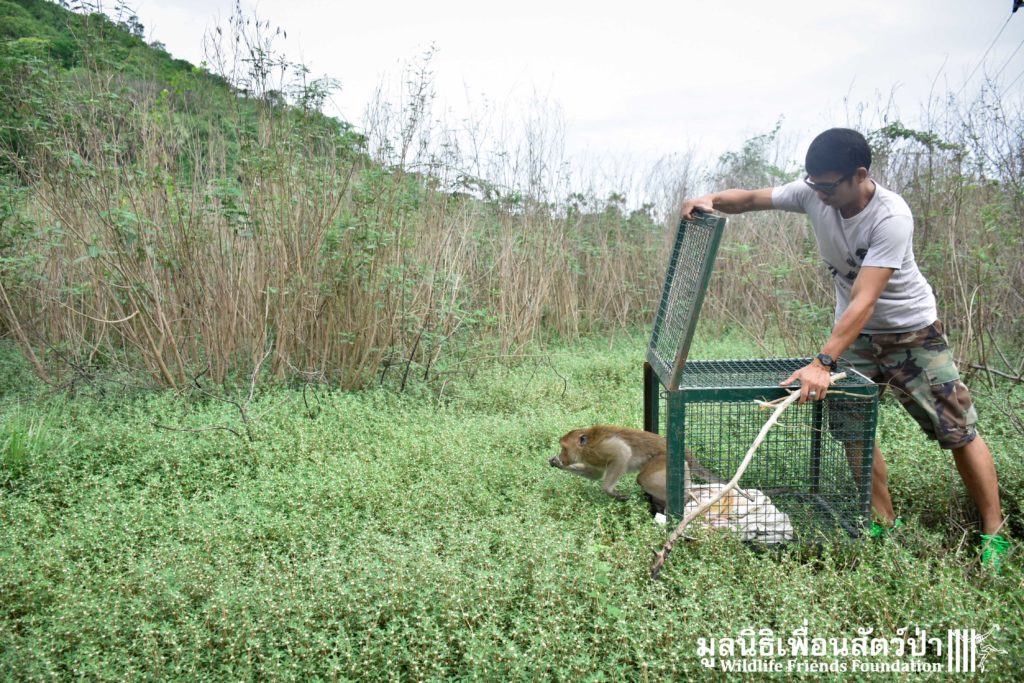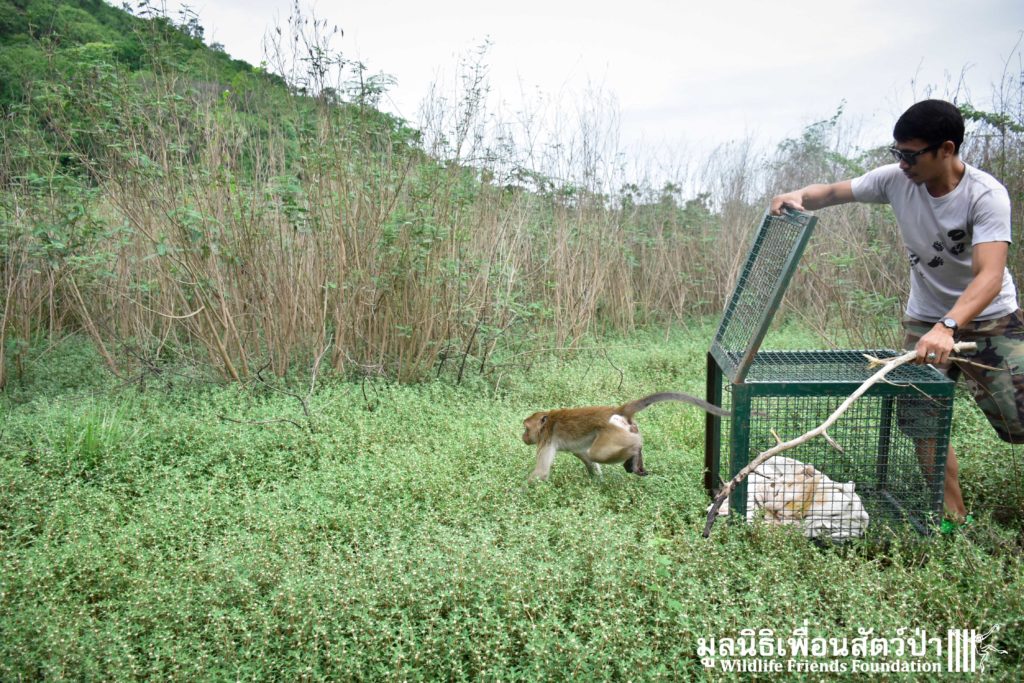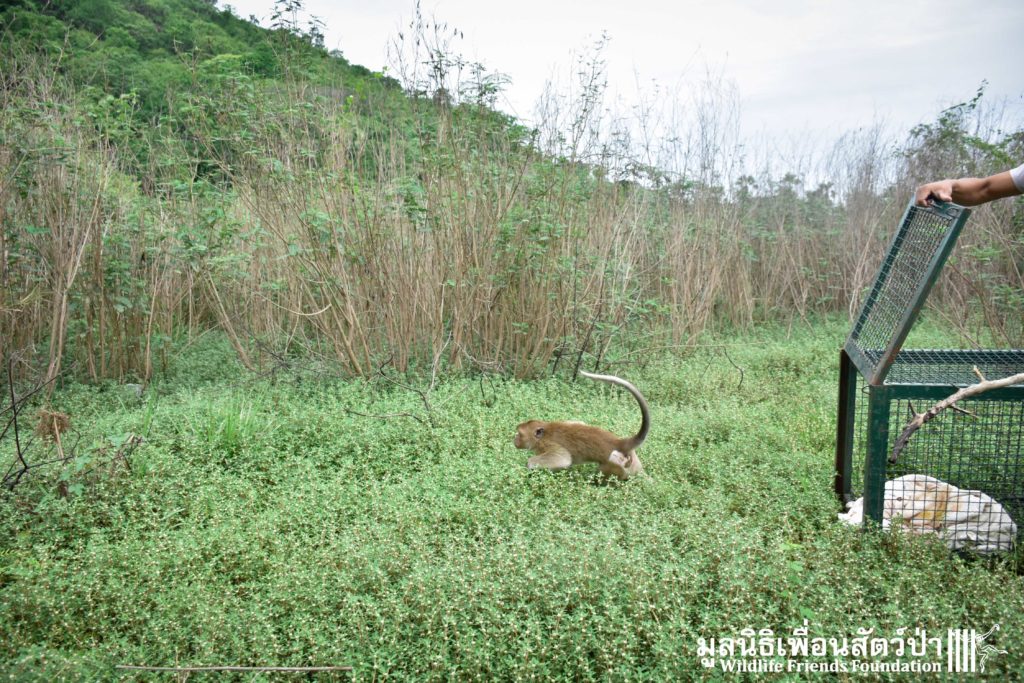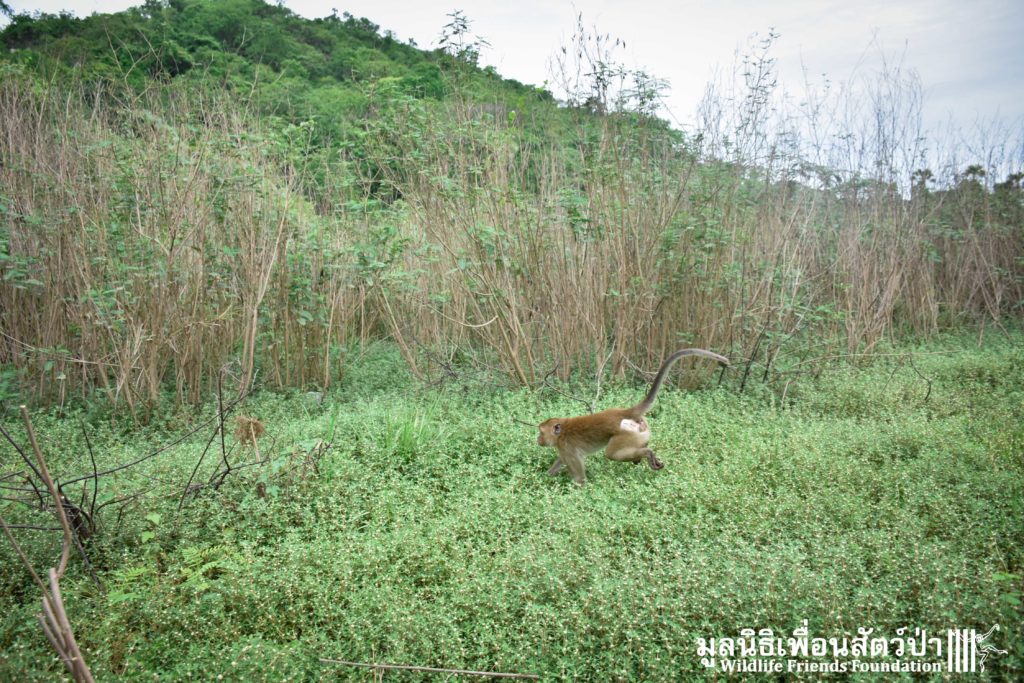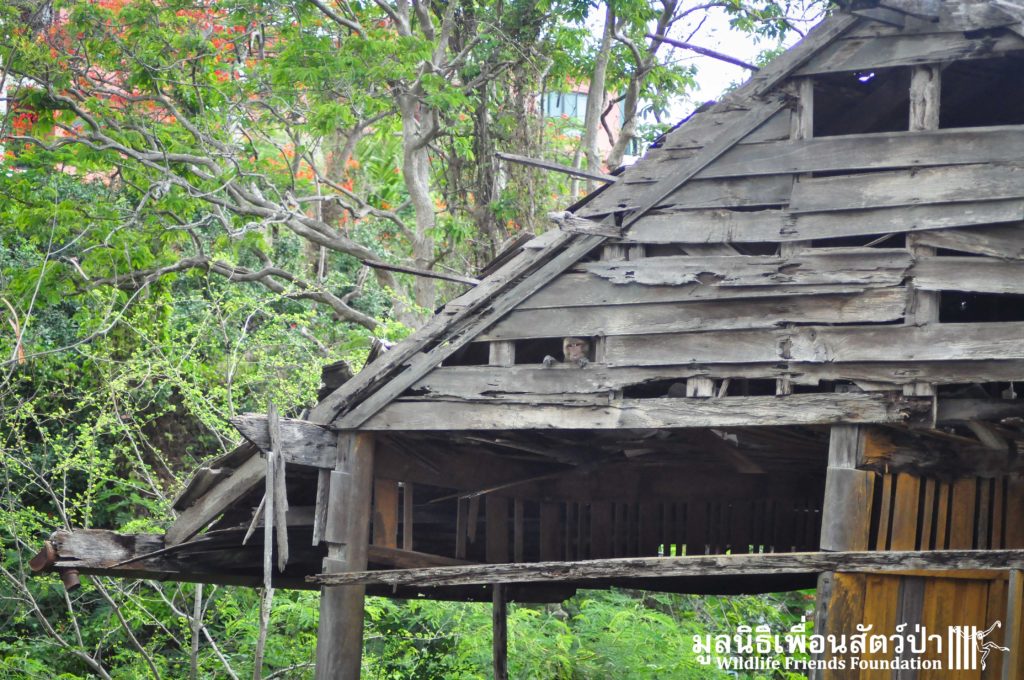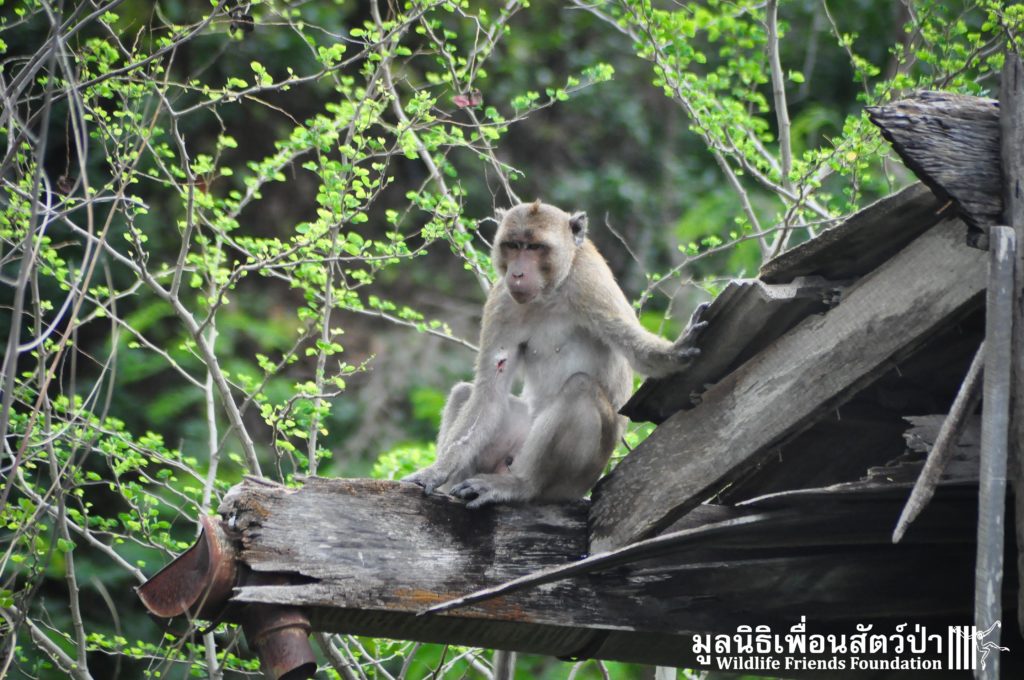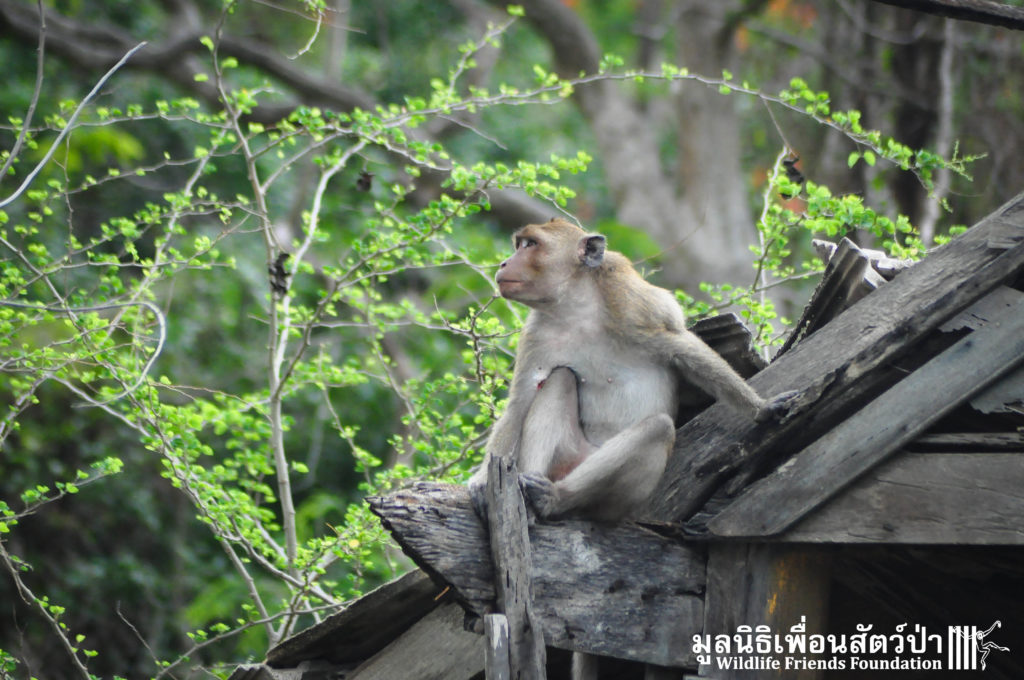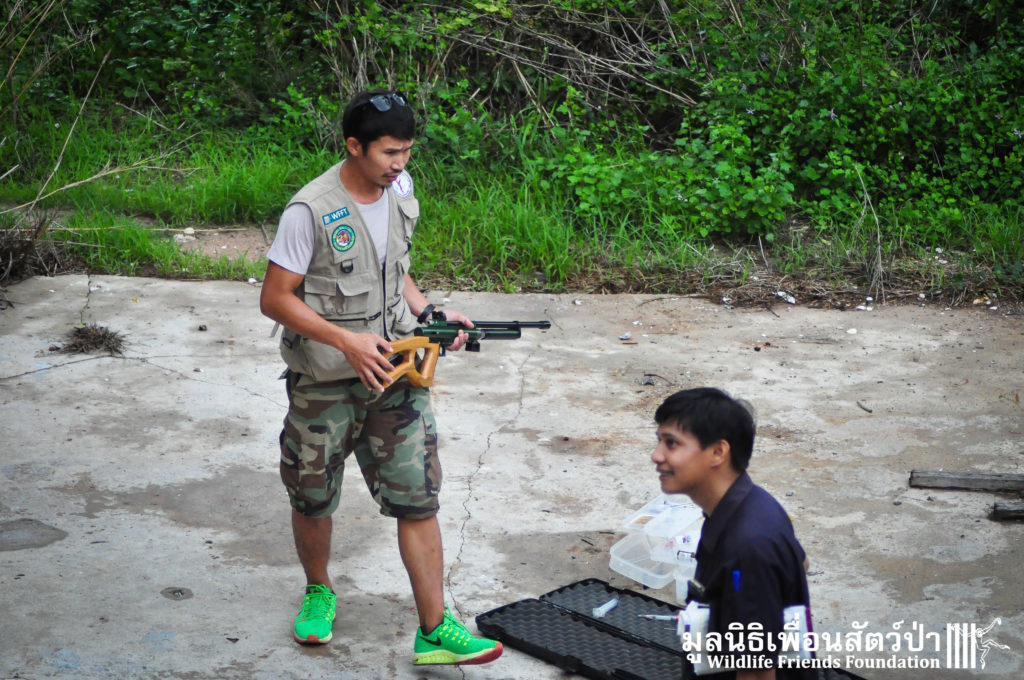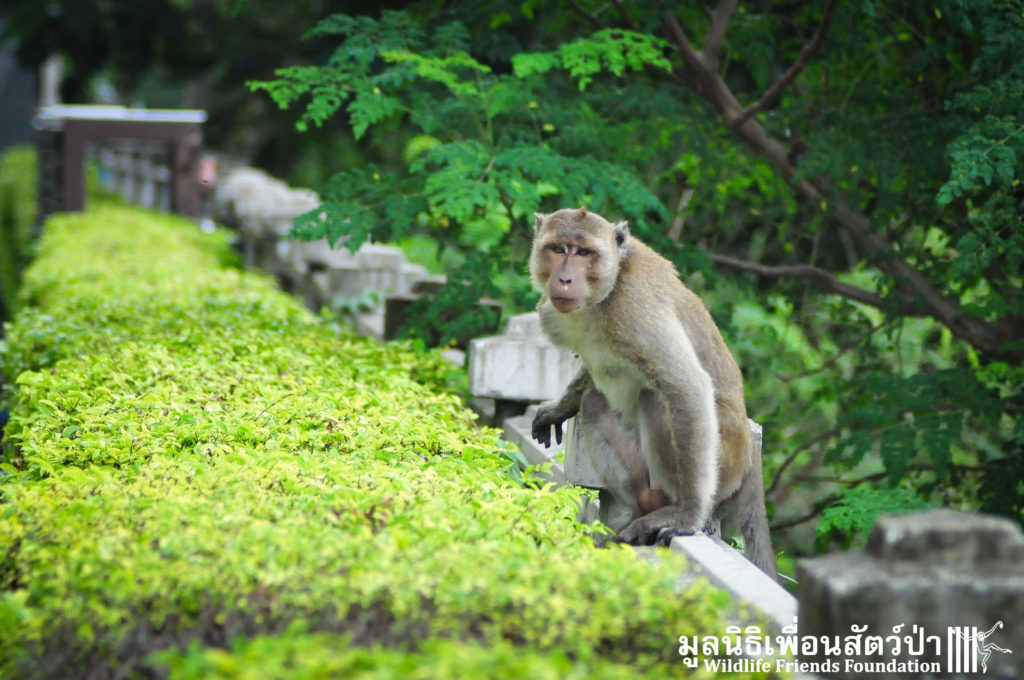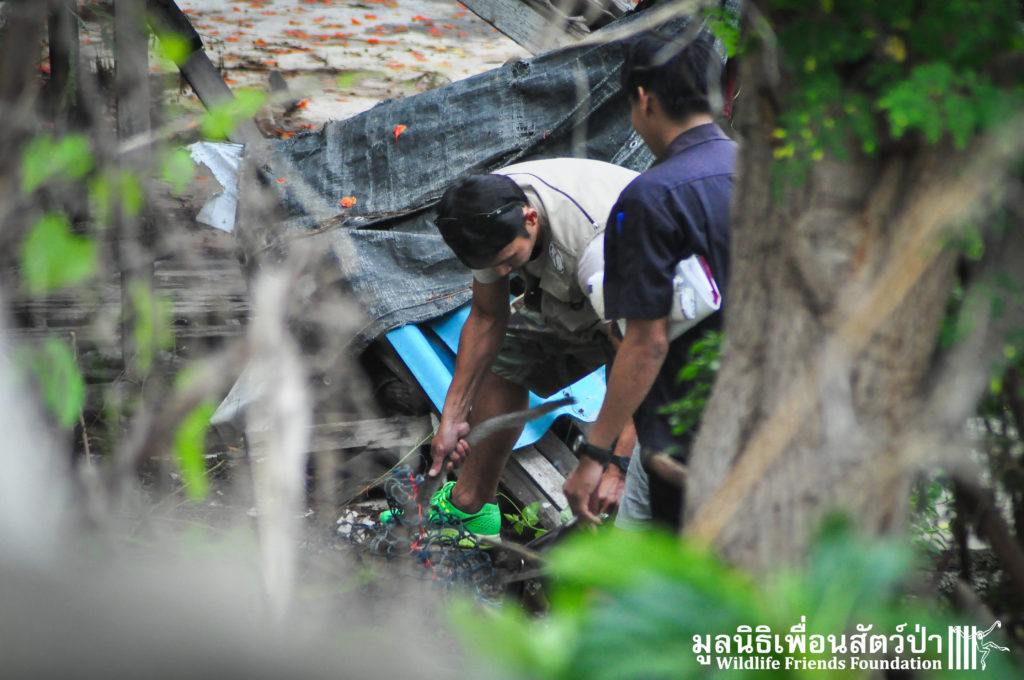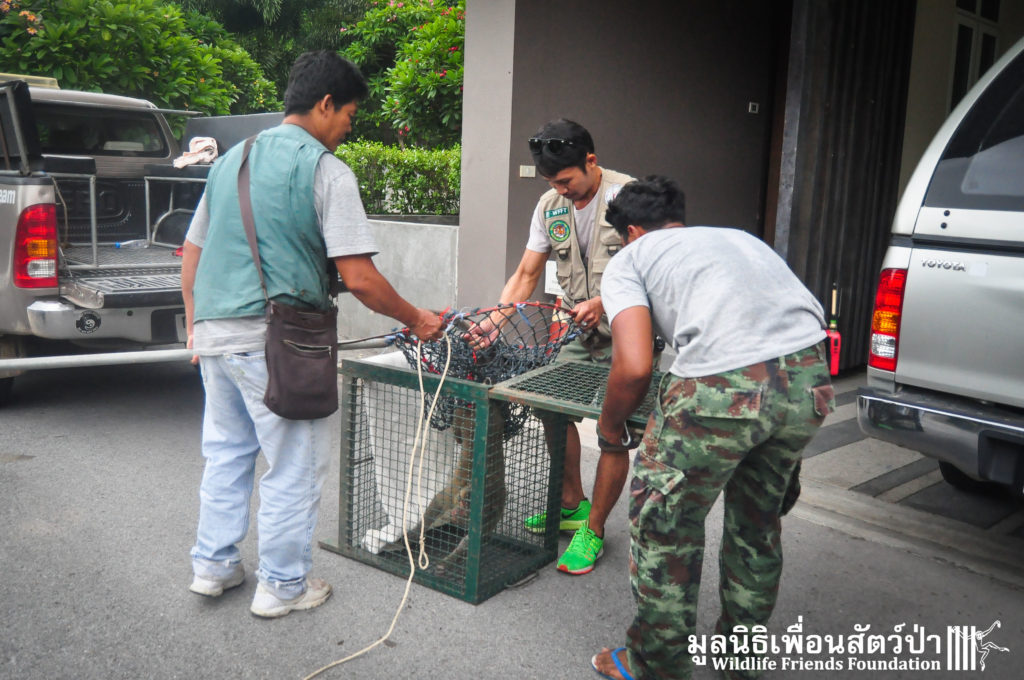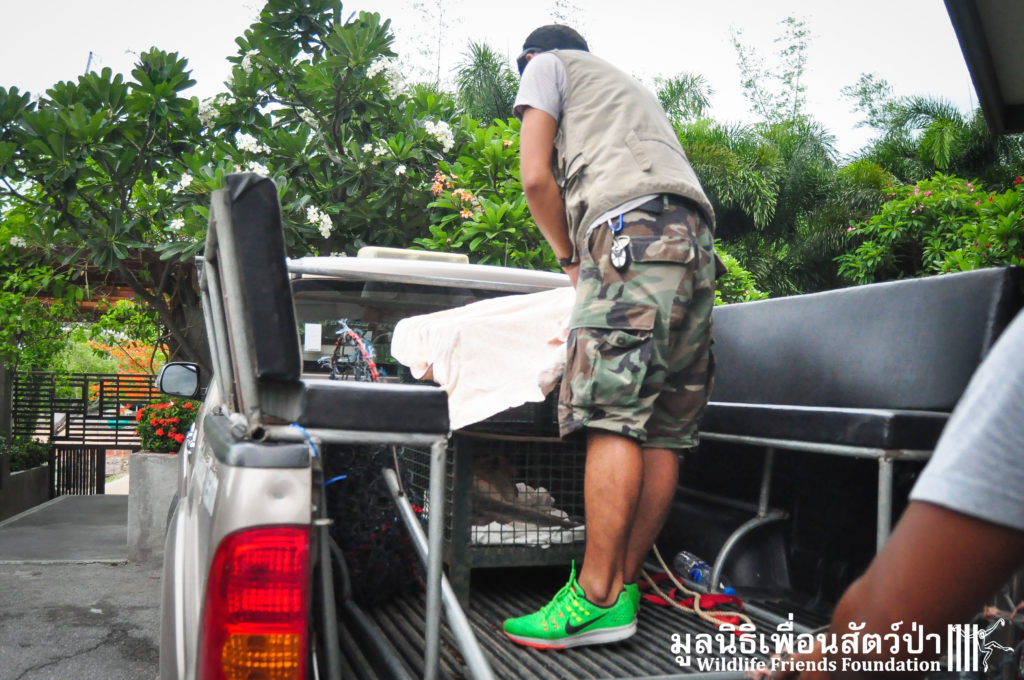We are pleased to announce the rescue and safe arrival of Heart, a white-handed gibbon who is more than 40 years old and missing her lower arms and hands.
Another Successful Primate Relocation
We received a call about a rogue male long-tailed macaque (Macaca fascicularis) that had been found inside a hotel in Hua Hin. The staff were scared of his presence, worried he was going to attack and injure someone. In an attempt to scare him away they began using a sling shot to hit him on the head with rocks. Luckily a concerned staff member called us before he was seriously injured or worse, killed. The WFFT Rescue Team headed out immediately to help him. Upon arrival to the scene the monkey was located, sedated and moved away from the area. He was taken to the WFFT Wildlife Hospital for a check up.
The long-tailed macaque is listed as Least Concern (LC) by the IUCN Red list of Threatened Species, in view of its wide distribution, presumed large population, tolerance of a broad range of habitats, occurrence in a number of protected areas. Although it is under heavy hunting pressure for the pet trade, meat, sport and trophies, this is not considered a major threat to the species overall. Females are often taken into breeding facilities and males are exported internationally primarily for use in laboratory research. They are regularly persecuted as pests. Habitat loss is also a localised threat, but the species can persist in a variety of habitats and very adaptable.
Male long-tailed macaques emigrate from their natal groups to adjacent trrops often before sexual maturity, although this occurs throughout their adult life. They will immigrate into a new groups and attempt to take-over and start reproducing, starting their own family line. This male may have been trying to do just this but lost his way and was unable to find another group of macaques and ended alone in a heavily urbanized area.
At WFFT he was given a check over by our team of vets. He had some small wounds which were cleaned and required a few stiches. He was given a vasectomy to prevent him from breeding in the future and to alleviate some of the human-macaque conflict within the region he came from. After spending a night at the WFFT Wildlife Hospital we released close to a troop of macaques not to far way from the area he was found, but far enough for him to stay away from humans. Luckily for this one he got another chance, sadly this isn’t the case for many other animals struggling to adapt to the continued loss of wild places and the increase in urban expansion. Run free big boy and please try to stay out of trouble.

